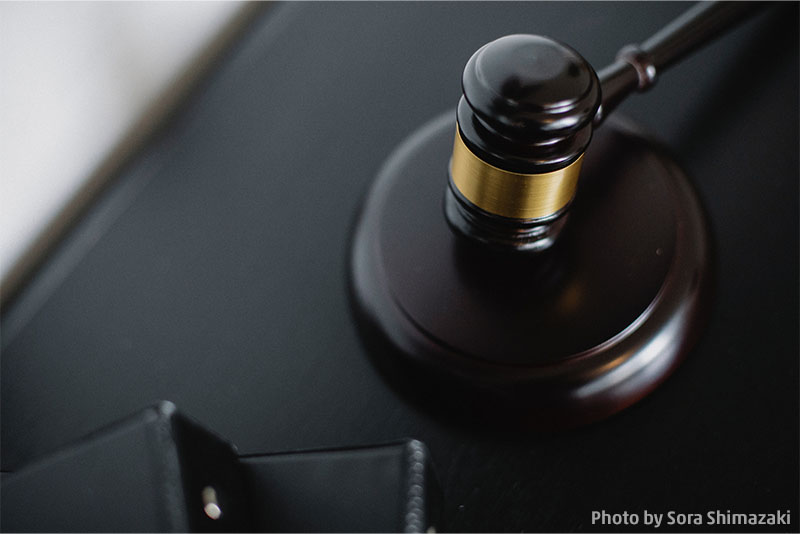
INACTION OF BUREAU OF CUSTOMS NOT APPEALABLE
TO COURT OF TAX APPEALS?
By: Atty. Mabel L. Buted
"It is clear that the CTA has jurisdiction to act on decisions by the Commissioner of Customs (COC) on cases involving liability for customs duties, fees or other money charges. But it is not clear whether the CTA could act over the inaction of the COC. Our Customs Laws prescribe certain periods for the COC to act on a protest or a claim for refund. But the CTA charter and rules and court decisions are not clear, if in case the COC fails to act within the specified periods, the said inaction may be appealed to the CTA."
The Court of Tax Appeals (“CTA”) is a court of special jurisdiction. It is the country’s court that specializes in tax and customs cases. But it can only act on matters that have been conferred to it by law, i.e., Republic Act (“RA”) No. 1125, as amended by RA Nos. 9282 and 9503.
The usual cases that are commonly raised before the CTA are decisions rendered by the Commissioner of the BIR (“CIR”) on disputed assessments and on claims for refund of internal revenue taxes and similarly, decisions rendered by the Commissioner of the Bureau of Customs (“COC”) on customs collection and refund cases.
 The CTA can also clearly rule on cases that are elevated to it because of inactions by the CIR. There are some provisions in the Tax Code where the CIR is required to decide up to a particular period and if it fails to do so, the inaction is deemed a denial of the protest to the assessment or of a claim for refund. The CTA can acquire jurisdiction over the CIR’s inaction as mandated by its Charter and by its own rules of court.
The CTA can also clearly rule on cases that are elevated to it because of inactions by the CIR. There are some provisions in the Tax Code where the CIR is required to decide up to a particular period and if it fails to do so, the inaction is deemed a denial of the protest to the assessment or of a claim for refund. The CTA can acquire jurisdiction over the CIR’s inaction as mandated by its Charter and by its own rules of court.
But it is not clear whether the same rule applies to the inaction by the COC. It is clear that the CTA has jurisdiction to act on decisions by the COC on cases involving liability for customs duties, fees or other money charges. But it is not clear whether the CTA could act over the inaction of the COC. Our Customs Laws prescribe certain periods for the COC to act on a protest or a claim for refund, just like CIR is mandated to act within a certain period. But the CTA charter and rules are not clear in this regard.
One provision under RA No. 1125, as amended, provides that the persons “who may appeal” include any party who is adversely affected by an inaction of the COC. But in another provision, under the same law, which enumerates the CTA’s “jurisdiction”, the inaction of the COC was not specifically and separately provided as one of the instances where the CTA may acquire jurisdiction.
The Customs Modernization and Tariff Act is also silent about this predicament. The law speaks only of decisions of the Commissioner of the BOC.
In a recent case (CTA EB No. 10559, February 22, 2022), the CTA held that it does not have jurisdiction over the inaction of the COC on cases involving liability for customs duties, fees or other money charges. Notably, the Supreme Court has also made a much earlier pronouncement in G.R. No. L-18808 (May 29, 1964), that there is no statutory grant for importers claiming refund of duties to go directly to the CTA, without awaiting the decision of the COC.
In another case (CTA EB No. 1973, July 14, 2020), however, the Tax Court itself made a statement that the inaction of the BOC shall not bar the Court from taking cognizance. The BOC’s inaction should not prejudice the right of the adverse party. I would like to note, however, that while this is the ruling, the CTA did not determine the specific point in time when the taxpayer may appeal after the inaction. In this case, the claim for refund has been pending for review with the COC for two years. In G.R. No. 134114 (July 6, 2001), the Supreme Court also remanded the case to the CTA for proper determination of a claim involving a refund of customs duties, after the COC’s inaction for almost six years.
There seems to be inconsistent positions in the decisions of the courts. I would like to advocate though that our taxpayers should be given a clear remedy against the inaction of the COC. If not, taxpayers will be left at the mercy of the inaction by government officers who swore to serve them. I do not think this is what the law intends, and I do not think justice will be served if inaction is left unchecked.
The author is a junior partner of Du-Baladad and Associates Law Offices (BDB Law), a member-firm of WTS Global.
The article is for general information only and is not intended, nor should be construed as a substitute for tax, legal or financial advice on any specific matter. Applicability of this article to any actual or particular tax or legal issue should be supported therefore by a professional study or advice. If you have any comments or questions concerning the article, you may e-mail the author at This email address is being protected from spambots. You need JavaScript enabled to view it. or call 8403-2001 local 160.




